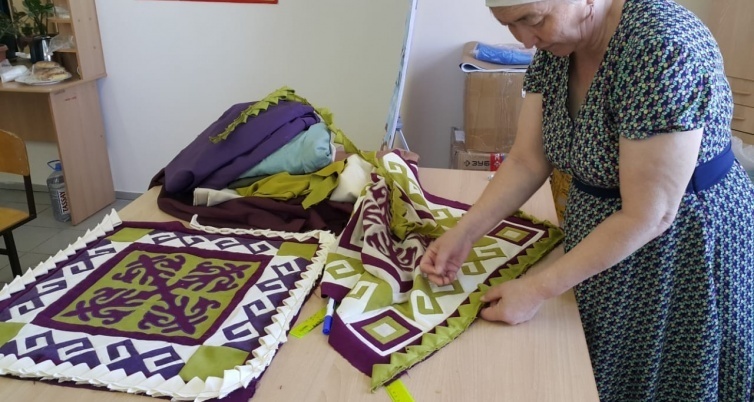Подпишитесь на наши новости:
News
другие News
European Union supports more active role of women and youth in decision-making in Kazakhstan
Qolda emergency assistance project
Qolda emergency assistance project
July 9, 2018
Do we still need wood shop classes in modern schools?
Many parents today doubt the usefulness of wood shop or, as it is now called, "technology lessons," in school. The team of the "LEARN TOGETHER" project of the Eurasia Foundation of Central Asia is sure that the lessons of labor are absolutely necessary.
"In view of the limited resources and increased competition at all levels, the world of occupations especially requires creative, creative and creative thinking. There is a merging and interweaving of various professions. The new generation must have completely different skills that can be effectively developed through wood shop, "says Azhar Nurbay, EFCA project manager.
"Many parents believe that wood shop lessons are a waste of time. I believe that the problem is not in the lessons themselves, but in the absence of competent personnel who can interest children. The curriculum also does not allow students to finish many projects. The status of teachers of labor is underappreciated; schools are not equipped with the simplest materials and technical basis for conducting work lessons. And so there is a situation where most students end up losing precious time, sitting out labor lessons for nothing."
Performing various tasks in the wood shop class, children develop valuable skills:
- they develop imagination, abstract thinking, 3D thinking, constructive (practical, technical) thinking, imaginative thinking, imagination, creativity, aesthetic taste, and creativity;
- they train memory, logic, eye, motor skills and coordination, independence, will, and patience;
- the main principle in the lessons of work is to "do it yourself," but the design work will give the children skills in teamwork;
- they develop love and attachment to their work, accustom them to accuracy, frugality and neatness;
- Working by hand gives them the opportunity to normalize the work of many body systems, because, first, physical activity trains the fine motor skills of the fingers, which means it develops the child. Secondly, on the surface of the palms, there is a large number of active points responsible for the operation of various human organs and systems, and when we are engaged in manual labor, these points are stimulated and affect the work of our body; and
- Such lessons function as an anti-stress drug and an antidepressant, and after intensive mental exercises in mathematics or languages, allow children to distract and relax, while benefiting in many other ways.
Within the framework of the project on social and psychological improvement in the schools of the village of Kuryk, the foundation trains wood shop teachers, teachers of art schools and neighborhood clubs in the village of Kuryk and other settlements of the Mangistau region, as well as schoolchildren. Specialists responsible for technology lessons for girls and boys will be able to improve their professionalism by improving the professional competencies available to them; the formation of new knowledge, innovative approaches, and skills for the effective performance of their job duties on the subject, including the provision of technical training tools.
"I conduct trainings as part of the program for improving the skills of teachers of technology lessons. As a mother of many children, I myself prefer hands-on lessons, along with physical education and other additional lessons from the curriculum. Such training also gives different types of traditional crafts an urgency. The promotion of arts and crafts in the regions of Kazakhstan with difficult living conditions can help with business ideas that may grow into production in the long term," says Gulmira Ualikhan, a coach and expert on "Kurak art," and founder of the Usta workshop.
"Today, working professions are in high demand in the country. Technology lessons are a kind of career guidance, where children get acquainted with technical and creative professions, economics and other basic 'survival lessons' in independent life. I believe that the lessons of technology must be taught and taught in a quality manner. Now we are undergoing training that will make our technology lessons more diverse and professional," says Tamara Unaibekova, a technology teacher at School No. 1 in Kuryk.
In 2018 alone, technology teachers will master 13 basic skills, including wood carving, working with non-ferrous metals, leather, textiles, traditional embroidery, dressing clothes and much more. All trainings are practical: participants during the training will produce souvenir kobyz, traditional Kazakh jewelry, ozhau, kamshy, felt favors, kurak corpse, traditional embroidered scarves and shirts, and so on.
In November 2018, a competition will be held among the schools of the village of Kuryk, where the winning school will receive the necessary equipment for further work with the students. Students' works will be exhibited at a charity fair on the territory of ERSAI Caspian Contractor LLC.







